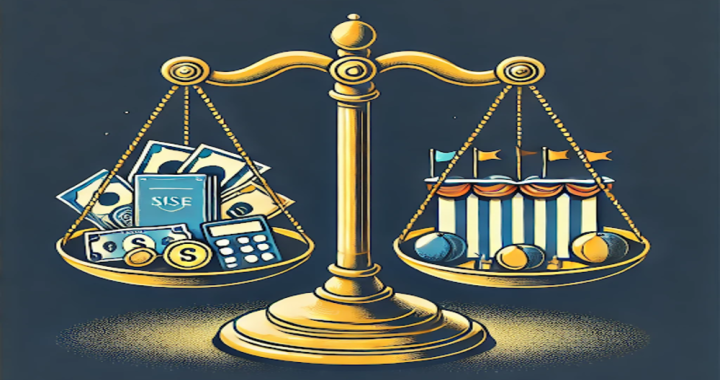Effective cost management is a cornerstone of successful event planning. While staying within budget is crucial, it’s equally important to ensure that cutting costs does not compromise the quality of your event.Read More
Cost management is essential for ensuring that an event remains financially viable and meets its objectives without overspending. Effective cost control helps prevent budget overruns, reduces financial stress, and maximizes the return on investment. However, it’s vital to recognize that cutting costs should not come at the expense of quality. A well-executed event with high standards can leave a lasting impression on attendees and enhance the overall success of the event. The first step in effective cost management is establishing a realistic budget. This involves understanding all potential expenses and setting a financial framework that aligns with your event’s goals and scope. Be detailed in your budget, categorizing expenses into key areas such as venue, catering, entertainment, marketing, and staffing. A realistic budget helps in identifying areas where cost savings can be achieved without affecting the quality. For example, if you have a fixed budget for catering, you might choose a more cost-effective menu or negotiate a package deal that includes additional services at a discounted rate. When managing costs, prioritize essential elements that directly impact the event’s success and attendee experience. Focus on aspects that deliver the greatest value and allocate funds accordingly. Non-essential elements or those with less impact can be adjusted or reduced to save costs. For instance, if you’re organizing a conference, investing in high-quality audio-visual equipment is crucial for ensuring clear presentations and engaging sessions. On the other hand, elaborate decor or extravagant giveaways might be less critical and could be scaled back to reallocate funds to more impactful areas. Negotiating with vendors is an effective way to manage costs without compromising quality. Vendors often have flexibility in their pricing and may offer discounts or value-added services if you negotiate effectively. Building strong relationships with vendors can also result in better deals and preferential treatment. For example, if you’re working with a venue, inquire about package deals that include additional services like catering or audiovisual equipment at a reduced rate. Similarly, negotiating with caterers for a more affordable menu that still meets high standards can help control costs while maintaining quality. Technology and innovation offer opportunities to reduce costs and enhance the efficiency of event planning. Utilizing digital tools and platforms can streamline processes, reduce manual tasks, and cut down on administrative costs. For instance, using event management software can simplify tasks such as registration, ticketing, and communication, reducing the need for additional staff or manual processes. Additionally, virtual or hybrid event formats can help lower costs associated with travel, venue rental, and logistics while reaching a broader audience. Implementing cost-saving strategies can help manage expenses without sacrificing quality. Consider creative approaches to reduce costs, such as: While managing costs, it’s essential to maintain quality standards to ensure a successful event. Quality should not be compromised, as it directly impacts attendee satisfaction and the overall perception of the event. Focus on delivering high-quality experiences in key areas such as content, service, and logistics. For example, invest in high-quality speakers and presenters to deliver valuable content, ensure excellent customer service throughout the event, and provide smooth logistical arrangements to enhance the attendee experience. Regular monitoring and evaluation of expenses help in staying on track and making informed decisions. Track expenses against the budget to identify any deviations and address them promptly. For example, if you notice that costs for a particular category are exceeding the budget, assess the situation and make adjustments as needed. Regularly reviewing financial reports and seeking feedback from the team can help in managing costs effectively and maintaining quality. Effective cost management is crucial for successful event planning, but it should not come at the expense of quality. By setting a realistic budget, prioritizing essential elements, negotiating with vendors, embracing technology, implementing cost-saving strategies, and maintaining quality standards, you can achieve a balance between cost control and high-quality event execution. Regular monitoring and evaluation ensure that you stay on track and make necessary adjustments, leading to a successful and memorable event. By striking the right balance, you can manage your finances efficiently while delivering an exceptional experience for your attendees.Understanding the Importance of Cost Management
Setting a Realistic Budget
Prioritizing Essential Elements
Negotiating with Vendors
Embracing Technology and Innovation
Implementing Cost-Saving Strategies
Maintaining Quality Standards
Regular Monitoring and Evaluation
Conclusion

Balancing the Books: Effective Cost Management for Event Planners
Effective cost management is a cornerstone of successful event planning. While staying within budget is crucial, it’s equally important to ensure that cutting costs does not compromise the quality of your event.Read More
Posted in Finance.
